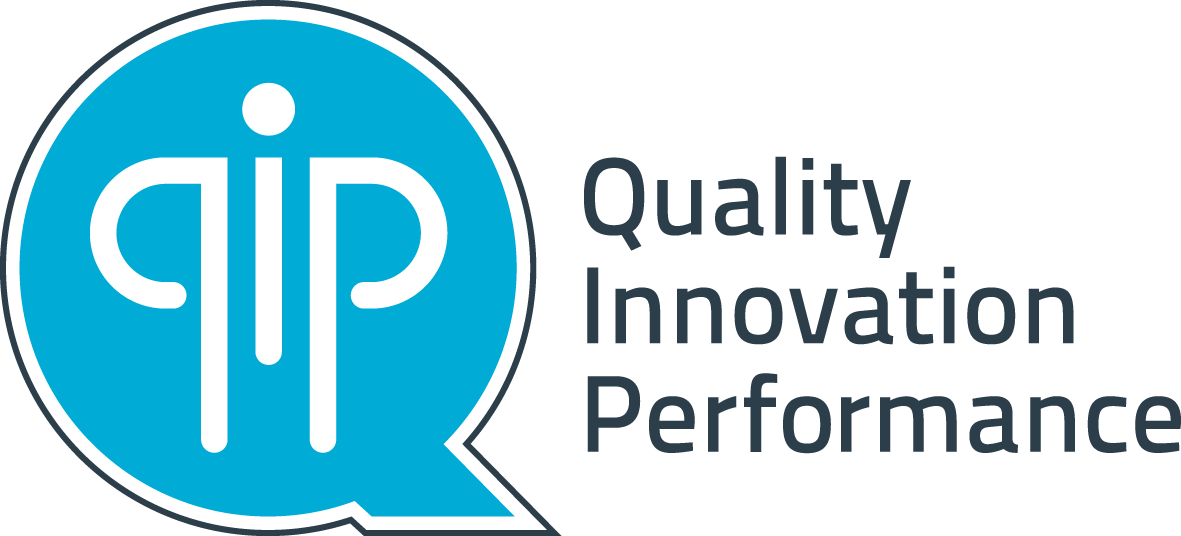Latest news

The importance of safeguarding children and vulnerable adults: minimising harm through safer systems and strengthened action
Safeguarding is a fundamental responsibility for all organisations—particularly those working with children and vulnerable adults. It is a proactive and continuous commitment to protecting individuals from harm, abuse, neglect, and exploitation. Safeguarding goes beyond compliance; it involves embedding policies, procedures, and everyday practices that foster safe, respectful environments. It also means having clear, effective processes in place to respond to concerns or incidents when they arise. By upholding safeguarding responsibilities, organisations demonstrate their commitment to the well-being, dignity, and human rights of every individual they engage with, whether they are service users, consumers, volunteers or employees.
Across Australia and the globe, high-profile inquiries and investigations have laid bare the consequences of failing to safeguard effectively. These events have made it clear that safeguarding isn’t optional—it’s essential. By shining a spotlight on safeguarding, we can shift the conversation from reactive responses to a culture of prevention, accountability, and continuous improvement. Now more than ever, organisations must strengthen their safeguarding frameworks, not only to meet regulatory expectations, but to actively protect those most vulnerable in their care.
In Australia, the importance of safeguarding has been brought into focus by a series of national inquiries that uncovered systemic abuse and neglect across multiple institutional settings. These Royal Commissions—into child sexual abuse, aged care quality, and violence against people with disability—exposed deep failures in oversight and accountability. Their findings directly influenced the development of national safeguarding frameworks and standards that aim to emphasise prevention, transparency, and the protection of human rights.
These three landmark inquiries form the current foundation for Australia’s national approach to safeguarding:
- Royal Commission into Institutional Responses to Child Sexual Abuse (2013–2017)
This inquiry investigated how institutions such as schools, churches, and government organisations responded to child sexual abuse. It heard thousands of survivor testimonies and exposed widespread failures in oversight and accountability. The Commission issued 409 recommendations aimed at preventing abuse, improving institutional responses, and ensuring greater transparency and child participation. - Royal Commission into Aged Care Quality and Safety (2018–2021)
Focused on the experiences of older Australians receiving care, this Royal Commission uncovered widespread neglect, abuse, and substandard services in both residential and in-home care. It found that many issues stemmed from poor staffing levels, inadequate training, and weak regulatory systems. In response, the Commission called for a fundamental overhaul of aged care, centred on human rights, safety, and person-centred care. - Royal Commission into Violence, Abuse, Neglect and Exploitation of People with Disability (2019–2023)
Through extensive evidence and testimonies, this Commission revealed the routine mistreatment and exclusion of people with disability across multiple settings—including schools, group homes, healthcare, and the justice system. It identified significant barriers to safety, inclusion, and access to justice, and made strong calls for inclusive, rights-based safeguarding frameworks that apply across all sectors of society.
These inquiries collectively emphasise the urgent need for proactive, prevention-based safeguarding strategies, alongside stronger accountability, leadership, and independent oversight across all sectors working with children and vulnerable people. Safeguarding is not just about responding to abuse after it occurs—it’s about preventing harm before it happens through intentional, proactive measures. In response, governments have introduced legal, policy, and practice reforms to ensure stronger safeguarding measures across a variety of sectors in Australia.
Organisations that work with children must now align with the National Principles for Child Safe Organisations, developed following the Royal Commission into Institutional Responses to Child Sexual Abuse. These principles embed a culture of child safety through leadership, staff training, child participation, and effective complaint processes. In many jurisdictions, they are backed by legislation and mandatory compliance requirements.
In aged care, the Royal Commission into Aged Care Quality and Safety led to strengthened oversight and the introduction of the Aged Care Quality Standards and Serious Incident Response Scheme (SIRS). These reforms ensure that providers are accountable for the safety, dignity, and care of older Australians through improved regulation, incident reporting, and workforce training.
The Royal Commission into Violence, Abuse, Neglect and Exploitation of People with Disability drove the expansion of protections for people with disability, including through the NDIS Practice Standards, NDIS Code of Conduct, and mandatory NDIS Worker Screening Checks. The Commission highlighted the need for inclusive, rights-based safeguarding across all settings—not just NDIS-funded services—and further national reforms are expected.
While many standards apply specifically to sectors like education, aged care, and disability services, all organisations working with vulnerable people—whether community groups, faith-based organisations, sporting clubs, or private providers—have a legal and ethical duty to provide safe environments.
Core safeguarding practices should include:
- Comprehensive pre-employment screening
- Ongoing staff and volunteer training
- Clear codes of conduct
- Accessible and confidential reporting systems
- Risk assessments and safeguarding planning
- Active leadership and governance oversight
In many jurisdictions, organisations working with children are legally required to comply with Child Safe Standards or maintain a Working With Children Check registration system. Others may be subject to general duty-of-care laws or face regulatory action under workplace health and safety legislation if safeguarding is not adequately addressed. Even in the absence of a formal mandate, implementing these frameworks reflects best practice and is essential for building trust, managing risk, and upholding the rights of individuals.
Many of the current safeguarding requirements stipulate that organisations must appropriately screen and train staff, create thorough reporting systems, and embed a culture of accountability. Within an organisational setting, safeguarding is more than compliance—it’s about fostering a culture where safety, respect, and well-being are present at every level.
To be truly effective, safeguarding must be embedded into the everyday systems, processes, policies, and culture of an organisation—rather than being treated as a reactive protocol triggered only after an incident. It requires a commitment to continuous improvement and a whole-of-organisation approach. Whether in schools, healthcare facilities, community services, aged care homes, sporting clubs or religious institutions, safeguarding must be at the core of how organisations operate.
A preventative approach increases trust, strengthens accountability, and ultimately fosters environments where children and vulnerable adults can thrive—free from abuse, neglect, and exploitation. It’s about creating safe spaces where individuals at risk are supported, respected, and protected at all times.
A strong safeguarding framework is essential—but it’s only effective when consistently implemented, monitored, and improved. That’s where independent, third-party accreditation can play a vital role.
Accreditation provides external validation that safeguarding commitments are more than words on paper—they are reflected in everyday practice. It reassures families, clients, communities, and regulators that safety is prioritised and upheld to nationally recognised standards.
At Quality Innovation Performance Limited (QIP), we are proud to be one of Australia’s most comprehensive not-for-profit accreditation providers. We support thousands of organisations across the health, community, and human services sectors to strengthen quality, safety, and cultural responsiveness through achievement of accreditation against close to 20 national frameworks.
Building on this foundation, QIP is developing a Safeguarding Framework and national accreditation program to help organisations embed best-practice safeguarding across governance, operations, and service delivery. Grounded in human rights, inclusion, continuous improvement, and proactive risk management, the program will support organisations to strengthen accountability and create environments where people feel safe, respected, and heard.
Once launched, this framework will offer a structured and independent way for organisations to assess and improve their safeguarding practices—ensuring commitments to child safety and the protection of vulnerable people are both met and meaningfully enacted. It will enable organisations to take tangible, preventative action while demonstrating accountability and building long-term trust with the people they serve.
Public trust is another fundamental pillar of safeguarding. The Royal Commissions have repeatedly shown how profoundly damaging it can be when that trust is broken—and how difficult it is to restore. Failures in duty of care can have long-term consequences for individuals as well as entire communities. This is why transparency, accountability, and independent oversight must be prioritised from the outset. As national safeguarding programs like accreditation continue to evolve, organisations that engage early demonstrate leadership and a genuine commitment to protecting those in their care.
Independent accreditation is a powerful enabler of continuous quality improvement. It helps move safeguarding beyond policy into lived organisational culture, governance, and frontline service delivery. By embedding safeguarding at every level, organisations can ensure it remains a sustained and visible priority.
Ultimately, safeguarding is a shared responsibility. Governments, organisations, professionals, and communities must work together to build environments where children and vulnerable adults are protected from harm. This requires strong leadership, a commitment to prevention, and a willingness to be held to account. By adopting a proactive, independently assessed approach, organisations contribute to a safer, more inclusive society—where all people are respected, supported, and empowered to live with dignity and security.
A national safeguarding accreditation framework provides a clear pathway for organisations to meet their safeguarding obligations, lead with integrity, and build the trust that is essential for lasting, positive change.
Emphasis is placed on recognising that safeguarding is not a one-off task—it’s a continuous, preventative commitment that must be embedded into the fabric of every organisation that supports children and vulnerable adults. By adopting a proactive approach grounded in human rights, accountability, and continuous improvement supported by initiatives such as accreditation, organisations can go beyond minimum compliance to truly minimise the risk of harm. As national frameworks continue to evolve, the opportunity is now for organisations to lead with purpose, strengthen their safeguarding systems, and help create a future where every individual feels safe, respected, and supported.



